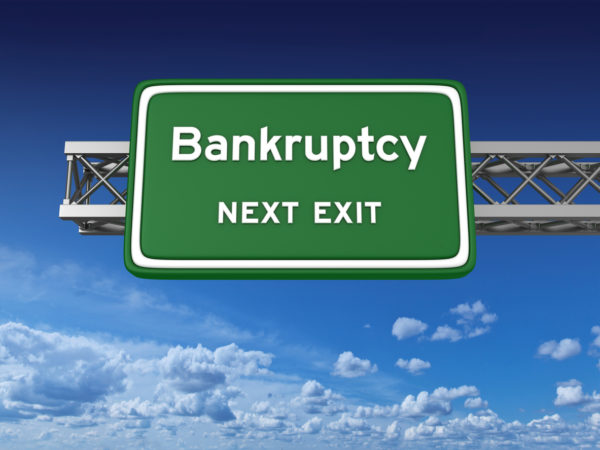Tenants and Bankruptcy: The Basics
November 27th, 2018 | By: William J. Trudgeon, Esq.
You’ve likely seen several commercials, billboards, and other advertisements by attorneys promoting their services to individuals seeking to file bankruptcy. However, when a tenant files bankruptcy, what are the landlord’s responsibilities and remedies?
Because a tenant cannot select which debts they include in their bankruptcy petition, any debts owed to a landlord by a tenant will be included. How that debt is treated is determined by the type of bankruptcy filed. Regardless, once a bankruptcy has been filed, the automatic stay is in effect, which is a hold on any collection activity, including seeking rent, against the debtor. A violation of the automatic stay can subject the landlord to severe penalties. Therefore, upon receiving notice of the filing, the landlord should contact its attorney to ensure it is protected during the bankruptcy.
There are two types of bankruptcy filings that an individual may file in order to seek financial relief under the Federal Bankruptcy Code: Chapter 7 and Chapter 13.
- Chapter 7: A Chapter 7 Bankruptcy is a liquidation bankruptcy whereby the debtor (tenant) can discharge or eliminate almost all of its debts. Generally, the sole debts that cannot be discharged are debts owed to the IRS, child support obligations, and student loans. When a debtor files a Chapter 7 bankruptcy, any debts incurred prior to filing, including rental amounts owed to the landlord, will most likely be discharged. Yet although a debtor does have an ability to discharge most debts, if they want to continue to reside at their current rental unit, they often choose to still directly pay the landlord.
- Chapter 13: A Chapter 13 bankruptcy is a restructuring of the debt. This type of filing allows the debtor to enter into a payment plan with the bankruptcy trustee whereby the debtor makes a lump sum payment each month, and a percentage then gets distributed to each creditor, which typically includes the landlord. The debtor is generally ordered to make these payments for a period of 3-5 years, after which all of the debts incurred before the bankruptcy was filed would be discharged, provided the plan is followed.
Regardless of whether a tenant files a Chapter 7 or 13 bankruptcy, any debts incurred by the tenant after filing its bankruptcy petition are considered “post-petition” debts and are generally not subject to discharge. Therefore, these debts may be able to be sought once the bankruptcy is discharged or the automatic stay has been lifted [1].
In light of the automatic stay and the penalties for a violation, if there is a non-payment proceeding against the debtor, it would need to be closed and contact with the tenant regarding the debts owed must cease. It can be frustrating for a landlord when a tenant files bankruptcy and therefore is able to temporarily remain in the premises without paying rent. However, the landlord has recourse as it can seek to have the automatic stay lifted by filing a motion in bankruptcy court. A “Motion for Relief” is thus a request by the landlord to proceed with collection activity despite the tenant’s active bankruptcy.
One commonly asked question of landlords once they receive notice of a tenant’s bankruptcy is whether or not they are allowed to continue to accept rental payments. The short answer is yes. However, it is important to keep track of those payments and the method in which payment is received. Again, you do not want to continue sending bills or invoices to the tenant as this can be interpreted as an attempt to collect a debt in violation of the automatic stay.
The Bottom Line: Landlords are often placed in challenging circumstances when a tenant files bankruptcy, especially when that individual owes a rental balance to the landlord. However, depending on the type of bankruptcy filed and the facts of the specific case, landlords do have options in order to avoid any significant disruptions in the landlord-tenant relationship.
[1] Collection of post-petition debts can be affected by multiple factors, such as intent of the debtor, the type of debt being sought, as well as any agreements made within the bankruptcy case.
Speak with a Paletz Landlord
Advocate Today
 - advice for small to mid-size businesses to help them better their day-to-day operations
- advice for small to mid-size businesses to help them better their day-to-day operations 